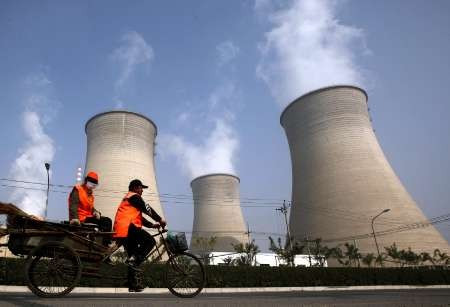Global carbon emissions almost stall but warming can become faster

With the Paris climate talks around the corner, there is good and bad news for the future. A study shows that the total greenhouse gas output rate has almost stalled.
It increased by just 0.5% in 2014 compared to the 3-4% in the first decade of this century. However, a Swedish study shows that warming can increase due to the effect of man-made emissions on natural emissions. A cut in the former can help substantially reduce the warming.
China's slow economic growth, its shift to clean energy and reduced energy intensity are cited as one of the major reasons for the drop in emissions rate in 2014. Emissions have slowed dramatically over the past three years, reports the Netherlands Environmental Assessment Agency (PBL) and the European Commission's Joint Research Centre study.
"The good news is that the really high growth rates that we saw before 2012 are really over," says Jos Olivier, a senior researcher at the PBL.
The European Union's emissions declined by 5.4% in 2014, due to warm winter and reduced consumption of fossil fuels. But US emissions increased by 0.9%, and India saw emissions continue on the upward path, registering a 7.8% increase in 2014.
China's emissions grew by just 0.9% in 2014 and its coal consumption was nearly flat, though the economy grew by 7%. However, the quality of energy data from China and other countries left a lot to be desired as they created uncertainties in emissions estimates.
Feedback loop
But, in what is a vicious feedback cycle, warming will worsen due to natural emissions influenced by increased temperatures, says a new study from Linköping University that measures natural methane emissions. A reduction in human-induced emissions can help cut direct warming and also the feedback effect on natural emissions.
"Everything indicates that global warming caused by humans leads to increased natural greenhouse gas emissions. Our detailed measurements reveal a clear pattern of greater methane emissions from lakes at higher temperatures," says Sivakiruthika Natchimuthu, doctoral student at Tema Environmental Change, Linköping University, Sweden, and lead author of the latest publication on this topic from her group.
The researchers found that methane from three lakes increased exponentially with temperature. A temperature increase of 5C almost doubled the methane level. As a result, the overall warming will be more and faster than expected from anthropogenic greenhouse gas emissions alone.
© Copyright IBTimes 2025. All rights reserved.





















